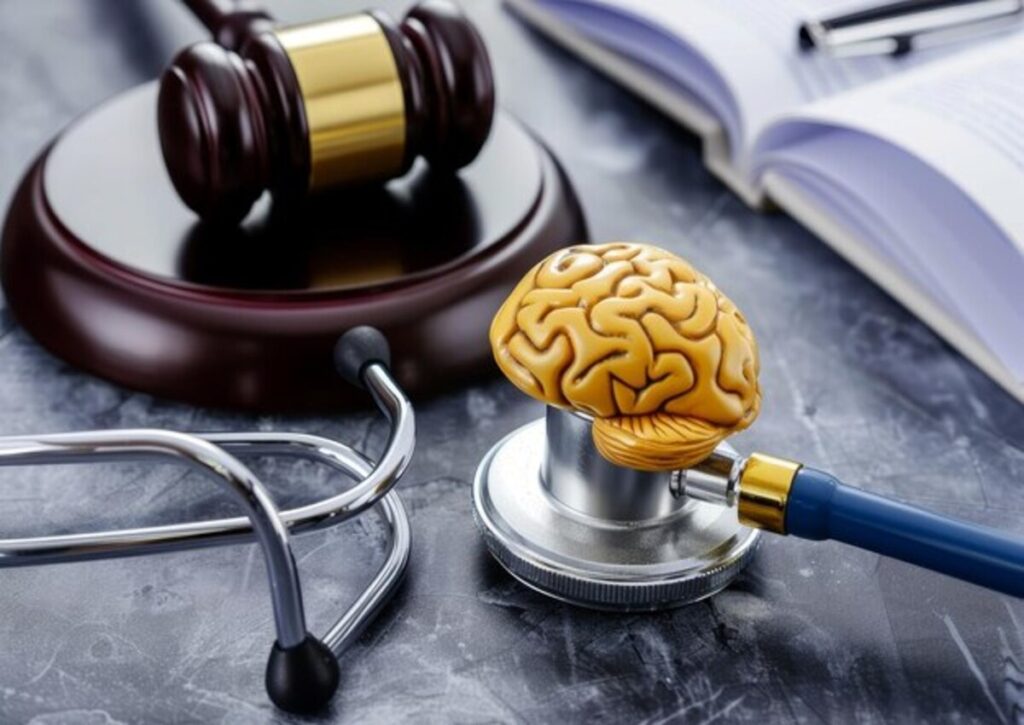How Neuropsychological Assessment Aid In Medico-Legal Cases?
In recent years, the role of neuropsychological assessments in medico-legal cases has gained significant attention. These evaluations offer comprehensive insights into an individual’s cognitive, emotional, and psychological state, making them indispensable in legal matters where brain function and mental health are key issues. Whether dealing with personal injury lawsuits, workers’ compensation claims, or disability determinations, the detailed information provided by these assessments often becomes a critical factor in influencing legal outcomes.
In this blog, we will explore the pivotal role neuropsychological assessments play in medico-legal cases, the methodology behind conducting these assessments, and their potential to impact legal judgments and decisions. With more cases involving complex neurological issues, the demand for such evaluations continues to rise.

Understanding Neuropsychological Assessments
Neuropsychological evaluations are thorough evaluations that focus on both cognitive and behavioral functions. These evaluations utilize a series of standardized tests and procedures specifically designed to assess various cognitive abilities. The areas of cognitive function that are typically measured include memory, attention, problem-solving skills, language proficiency, and visuospatial abilities. These assessments provide a detailed understanding of an individual’s brain function, helping to identify any cognitive deficits or impairments that may be present.
By offering this comprehensive insight, neuropsychological assessments are invaluable in diagnosing neurological conditions and guiding appropriate treatment plans.
What Do Neuropsychological Assessments Measure?
neuropsychological assessments are designed to evaluate the functioning of an individual’s brain across several cognitive domains. These assessments focus on key areas such as:
- Memory: Assessing short-term memory and long-term memory retention and recall.
- Attention and Concentration: Measuring the ability to focus and maintain attention over time.
- Executive Functions: Evaluating skills like planning, decision-making, problem-solving, and self-regulation.
- Language Abilities: Testing speech, comprehension, reading, and writing skills.
- Visuospatial Abilities: Understanding how well a person can perceive and interpret spatial relationships.
- Motor and Sensory Skills: Examining coordination, motor speed, and sensory responses.
- Emotional and Personality Functioning: Analyzing emotional regulation, mood, and personality traits.
The results of these evaluations can detect cognitive impairments caused by various neurological conditions, including traumatic brain injury (TBI), stroke, dementia, and other cognitive disorders. This detailed analysis helps in diagnosing conditions and crafting tailored treatment plans.

The Relevance of Neuropsychological Assessments in Legal Cases
neuropsychological assessments hold significant weight in legal cases, as they can provide critical evidence regarding an individual’s cognitive and psychological functioning. These assessments are particularly relevant in various legal scenarios, including:
By offering objective, scientific data on brain function, these assessments play a crucial role in shaping the outcomes of legal proceedings.
Personal Injury and Workers’ Compensation Claims
In cases of brain injury resulting from accidents or work-related incidents, neuropsychological assessments play a vital role in determining the level of cognitive impairment. This evaluation helps establish the severity of the injury and its effect on the individual’s ability to perform daily tasks and maintain employment. The objective data gathered can be instrumental in quantifying damages, often directly impacting the compensation an individual may receive in personal injury or workers’ compensation claims. These assessments provide critical insights that may significantly influence the outcome of such cases.
Disability Determinations
Disability claims frequently hinge on objective evidence of cognitive dysfunction, and neuropsychological assessments provide the necessary proof of these impairments. These evaluations reveal the limitations caused by cognitive issues, such as memory loss, attention deficits, or executive dysfunction, which can be used to support claims for disability benefits. The detailed findings often strengthen the argument for the need for ongoing support therapy services and financial assistance, ensuring individuals receive the help they need based on their mental and cognitive health.
Criminal Cases
Neuropsychological assessments can be a key factor in criminal cases, particularly when questions about an individual’s mental competence arise. These evaluations help determine whether a defendant is competent to stand trial or assess their mental state at the time of the offense. Insights from these assessments can provide crucial evidence regarding the accused’s ability to comprehend legal proceedings or whether cognitive impairments contributed to diminished responsibility, affecting sentencing or trial outcomes.
Guardianship and Competency Hearings
In guardianship and competency hearings, neuropsychological assessments provide valuable evidence on an individual’s ability to manage personal, financial, and daily affairs. These evaluations offer objective proof of cognitive decline or impairments that may necessitate legal guardianship or other forms of protective oversight. The findings guide legal decisions about whether individuals can independently make informed decisions regarding their well-being and financial matters.
The comprehensive nature of neuropsychological assessments makes them an indispensable tool in a wide range of legal cases, providing objective, scientific data that supports or challenges claims related to cognitive functioning.

Conducting Neuropsychological Assessments
neuropsychological assessments are typically carried out by clinical psychologists with specialized expertise in brain-behavior relationships, a crucial aspect of neuropsychology. These professionals undergo extensive training to understand how different brain regions impact cognitive, emotional, and behavioral functions. Clinical research in this area enhances the accuracy and effectiveness of these evaluations, contributing to a deeper understanding of the brain’s role in behavior and cognition. This research is vital in refining the tools and methods used for assessing brain-related conditions in clinical and medico-legal contexts.
These assessments provide objective data that can be critical in diagnosing neurological conditions and forming an evidence-based understanding of an individual’s cognitive and psychological health.
The Assessment Process
The neuropsychological assessment process begins with a comprehensive clinical interview. During this initial phase, the clinician gathers detailed information about the individual’s medical history, educational background, and current symptoms. This step is crucial in understanding the context of the individual’s cognitive and behavioral functioning. After the interview, a battery of standardized neuropsychological tests is administered. These tests are tailored to assess various cognitive abilities, such as memory, attention, language, and problem-solving skills. Depending on the complexity of the case, the testing process can take several hours to complete.
Interpreting the Results
Once the testing is complete, the neuropsychologist thoroughly analyzes the individual’s performance, comparing the results to normative data derived from healthy individuals of the same age, education level, and background. This comparison helps identify cognitive strengths and weaknesses, revealing any areas of impairment. The neuropsychologist looks for patterns in the test results that may be indicative of specific neurological conditions, such as traumatic brain injury, dementia, or other cognitive disorders. Finally, a detailed report is prepared, outlining the findings, their implications, and recommendations for treatment or further interventions. This report is often used in clinical, legal, or rehabilitative settings to guide decision-making and next steps.

Neuropsychological Assessments and Expert Testimony
Neuropsychologists are often called upon to provide expert testimony in court, particularly in cases where cognitive impairments are a critical factor. Their testimony can clarify the results of their assessments and explain how cognitive deficits impact the individual’s daily life and future capabilities. This expert input can be pivotal in personal injury, disability, and criminal cases, as it provides an objective, science-based evaluation of the individual’s mental and cognitive health.
Establishing Credibility
For neuropsychological evidence to be admissible and impactful in court, it must meet high standards of credibility. The neuropsychologist’s qualifications, the scientific validity of the tests administered, and the reliability of the results are closely scrutinized. The neuropsychologist must demonstrate that the assessment tools used are standardized, widely accepted in the field, and properly applied to the case at hand. Maintaining objectivity and basing testimony solely on the data from the evaluation are essential for upholding credibility in a legal setting.
Challenges in Court
Despite the value of neuropsychological assessments, they can face challenges in court. Opposing counsel may question the subjectivity of certain tests or suggest that the results are affected by malingering (intentional underperformance) or psychological factors unrelated to the injury or condition. It is the neuropsychologist’s responsibility to address these concerns by explaining the rigor of the testing process, the measures taken to ensure the accuracy of the results, and the safeguards against malingering. By defending the integrity of the assessment, the expert helps ensure that the neuropsychological evidence is given appropriate weight in court proceedings.
Impact on Legal Outcomes
Neuropsychological assessments can have a profound influence on the outcomes of various legal cases. In civil litigation, such as personal injury claims, these assessments often lead to settlements by providing clear evidence of cognitive impairments and their effect on the individual’s quality of life. In criminal cases, the findings can impact sentencing, particularly if cognitive deficits suggest diminished responsibility or reduced capacity to understand the consequences of one’s actions. Additionally, neuropsychological evaluations can determine eligibility for disability benefits by offering objective evidence of mental or cognitive impairments that prevent an individual from working or functioning independently.
Case Studies and Precedents
Numerous legal cases have demonstrated the decisive role that neuropsychological assessments can play. For instance, in traumatic brain injury (TBI) cases, these assessments have been key in securing compensation for individuals suffering long-term cognitive impairments. These evaluations provide the evidence necessary to argue that the injury has had a lasting impact on memory, concentration, and problem-solving skills, all of which diminish the individual’s ability to function in daily life and the workplace. These precedents highlight the importance of neuropsychological evidence in ensuring fair compensation and justice.
Ethical Considerations
Neuropsychologists must follow strict ethical guidelines when conducting assessments and offering testimony in court. It is essential that assessments are carried out impartially, without any bias, and that the findings are based solely on the data derived from standardized testing. Neuropsychologists are ethically bound to present their conclusions accurately, ensuring that the court or relevant legal parties fully understand the implications of the findings. By adhering to these ethical principles, neuropsychologists ensure that their role in legal cases contributes to fair and just outcomes.
Conclusion
neuropsychological assessments have become an essential tool in medico-legal cases, offering comprehensive insights into an individual’s cognitive, emotional, and psychological health. Whether involved in personal injury, disability claims, or criminal defense, these assessments provide objective, scientific evidence that can influence legal outcomes. By thoroughly evaluating brain function, neuropsychologists contribute to accurate early diagnoses, fair compensation, and just rulings. As the demand for neuropsychological insights continues to grow, their role in shaping legal proceedings becomes even more critical, ensuring that cognitive impairments are properly understood and addressed within the justice system.
FAQs
What is a neuropsychological assessment?
A neuropsychological assessment is a comprehensive evaluation of cognitive functions, including memory, attention, language, and problem-solving, often used to diagnose cognitive impairments.
How are neuropsychological assessments used in legal cases?
They provide objective evidence of cognitive deficits, helping to support claims in personal injury, workers’ compensation, and disability cases or assess competency in criminal cases.
How long does a neuropsychological assessment take?
The assessment process, including testing and interviews, can take several hours, depending on the complexity of the case.
What kind of conditions can neuropsychological assessments diagnose?
They can help diagnose conditions like traumatic brain injury (TBI), stroke, dementia, and other cognitive disorders.
Can neuropsychological assessments be challenged in court?
Yes, opposing counsel may challenge the subjectivity of certain tests or question the possibility of malingering, but neuropsychologists address these concerns by explaining the rigor and objectivity of the testing process.

